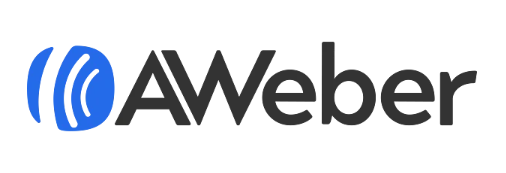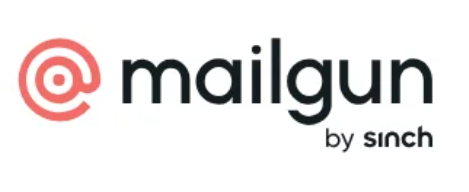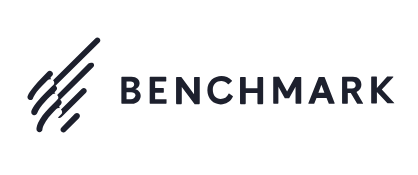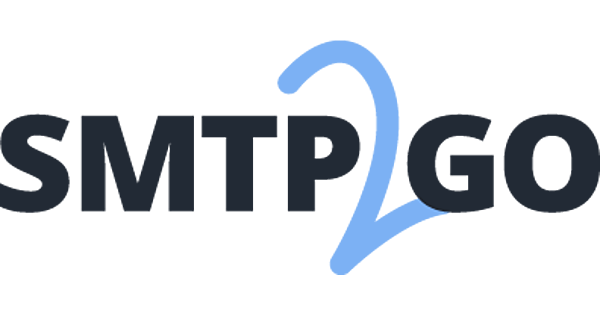Top Email Marketing Tools of 2023 - Boost Your Business Outreach

Introduction
In the digital era, where everything is increasingly connected, email marketing remains one of the most effective ways to reach your audience, build lasting relationships, and drive conversions. But, with many options available, how do you choose the best email marketing tools for your business?
Why Email Marketing is Crucial for Your Business
Reaching Your Target Audience
Unlike other marketing channels, email marketing allows you to reach the inbox of your potential customers directly. This targeted approach ensures your message gets in front of the right people, increasing the likelihood of them taking action.
Building a Relationship with Your Customers
Email marketing allows businesses to build personalized relationships with their customers. By regularly sending out newsletters, product updates, and customized offers, you can engage with your audience and build trust over time.
Driving Conversions
A well-crafted email campaign can motivate readers to act, whether purchasing, signing up for a webinar, or reading your latest blog post. This makes email marketing a powerful tool for driving conversions and ROI.
Key Features to Look for in an Email Marketing Tool
Automation
Automation is a game-changer. It allows you to send emails based on trigger events or schedule them in advance, giving you more time to focus on crafting the perfect message instead of the logistics.
Analytics
An ideal email marketing tool should provide robust analytics to track open, click-through, and conversion rates. This data allows you to measure the success of your campaigns and adjust your strategies as needed.
Integration
Your email marketing tool should seamlessly integrate with your other business tools, such as your CRM or e-commerce platform. This makes it easier to manage your workflows and ensure your marketing efforts are coordinated.
Ease of Use
Even the most potent tool is only helpful if it's simple enough. Your chosen platform should have a user-friendly interface and offer excellent customer support to help you navigate any issues that may arise.
The Top Email Marketing Tools
| Number | Name | Image | Best For | Rating | Pricing |
| 1 | Mailchimp | (Monkey logo) | Small to mid-sized businesses | 4.5/5 | Free tier, then starts at $9.99/month |
| 2 | Constant Contact | (Blue 'C' logo) | Small businesses & non-profits | 4.3/5 | Starts at $20/month |
| 3 | SendinBlue | (Blue bird logo) | E-commerce businesses | 4.6/5 | Free tier, then starts at $25/month |
| 4 | GetResponse | (Orange 'G' logo) | Online marketers | 4.4/5 | Starts at $15/month |
| 5 | AWeber | (Blue 'A' logo) | Bloggers and content creators | 4.2/5 | Starts at $19.99/month |
| 6 | ConvertKit | (White 'K' logo) | Professional bloggers & content creators | 4.5/5 | Starts at $29/month |
| 7 | Drip | (Blue drop logo) | E-commerce businesses | 4.4/5 | Starts at $19/month |
| 8 | ActiveCampaign | (Green 'A' logo) | Advanced marketing automation | 4.6/5 | Starts at $15/month |
https://yesware7054.grsm.io/nzp878qo519j
https://partners.beefree.io/tvqd5unfm07y
https://pstk.campaigner.com/y7nd1kq4ezts
Beefree
1. Aweber:

Aweber is a prominent email marketing platform known for its robust features and user-friendly interface. It's been a favorite among small to medium-sized businesses for years.
Main Features:
- Drag-and-Drop Email Builder: Easily create professional-looking emails without needing to code.
- Automations & Campaigns: Send a series of automatically triggered emails with their campaign feature.
- Email Templates: Over 700 mobile-responsive templates to choose from.
- Segmentation: Send targeted emails to specific groups within your list.
- Reporting: Analyze your email's performance with comprehensive analytics.
- Integrations: Connect with popular apps and tools like WordPress, PayPal, and Shopify.
Benefits:
- High Deliverability Rate: Ensures emails land in the recipient's primary inbox.
- Customer Support: Offers 24/7 customer support, which is especially beneficial for beginners.
- Education Resources: Provides webinars, articles, and guides to help users maximize their email marketing.
Pricing:
- Aweber offers a free plan for up to 500 subscribers and 3,000 monthly email sends.
- Their Pro plan starts at $19.99/month for up to 500 subscribers, with pricing increasing based on the number of subscribers.
Pros:
- User-Friendly Interface: Intuitive even for those new to email marketing.
- Reliability: Known for its consistent service and high deliverability rates.
- Quality Customer Service: Recognized for its helpful and responsive support team.
Cons:
- Limited Advanced Features: Some users might find it lacking in advanced features compared to some newer platforms.
- Pricing: Can get expensive as your subscriber count grows, especially when compared to some competitors.
Summary:
Aweber stands out for its ease of use, making it a top choice for those new to email marketing. It offers all the essential features one would expect from an email marketing tool, with the added advantage of quality customer support and a high deliverability rate. While it might fall short in advanced features and can become pricier for larger businesses, it remains a reliable and user-friendly option for many.
Visit Aweber Here!
2. MailGun:

Mailgun is a leading email service primarily designed for developers. It offers powerful email sending, receiving, and tracking features, making it particularly suitable for businesses that need to send, track, and manage large volumes of emails.
Main Features:
- SMTP Relay and Flexible API: Integrate and send emails from your app, whether it's a website, mobile app, or a server.
- Email Validation: Reduces bounce rates by ensuring that you only send emails to valid addresses.
- Email Tracking and Analytics: Monitor your email performance with logs and real-time data.
- Inbound Email Parsing: Turn your emails into structured data and handle it within your application.
- Email Storage: Retrieve and store your emails for detailed analysis and audit if required.
Benefits:
- Reliability: High deliverability rates to ensure your emails reach the intended inbox.
- Scalability: Designed to handle both small and vast volumes of emails.
- Security: Enforces two-factor authentication and provides dedicated IPs.
Pricing:
- Pay-as-you-go Model: Mailgun offers a flexible payment system based on the number of emails sent and the number of validations.
- They also offer a "Flex" plan which is free for up to 5,000 emails per month.
Pros:
- Developer-Focused: Provides robust APIs for integration.
- Strong Deliverability: Efficient in ensuring emails avoid the spam folder.
- Detailed Analytics: Gives an in-depth insight into your email's performance.
Cons:
- Complexity: Being developer-focused, it might not be as user-friendly for non-developers.
- Limited Email Design Tools: Unlike traditional email marketing platforms, it doesn't emphasize email creation tools or templates.
Summary:
Mailgun is a robust and reliable choice for developers and businesses that need more than just basic email marketing. Its strength lies in sending, tracking, and managing bulk emails efficiently. While it might not be the best choice for someone looking for a complete email marketing solution with built-in design tools, for developers and businesses requiring a programmatically sophisticated email solution, Mailgun stands tall.
3. BenchmarkEmail:

Benchmark Email is a prominent email marketing solution tailored for businesses of all scales. Known for its user-friendliness and versatility, it assists companies in achieving maximum email engagement and conversions.
Main Features:
- Drag-and-Drop Editor: Allows users to design professional-looking emails without any technical know-how.
- Responsive Design: Emails created using Benchmark automatically adapt to the screen size of the device they're opened on, ensuring a consistent look across all devices.
- Automated Email Campaigns: Users can set up drip campaigns, welcome email series, and other automated emails based on triggers or user behavior.
- Segmentation: Segment contacts based on behavior, location, or other criteria to deliver tailored email campaigns.
- A/B Testing: Test different subject lines, content, or sending times to determine what resonates most with your audience.
- Reporting and Analytics: Comprehensive reports on open rates, click-through rates, bounce rates, and more to gauge the success of email campaigns.
Benefits:
- Ease of Use: The platform is designed to be user-friendly, even for beginners.
- List Management: Helps in cleaning and managing the email list, removing duplicates, and handling unsubscribes automatically.
- Integrations: Integrates with popular third-party tools and platforms, widening its usability.
- Customizable Templates: Provides a variety of pre-designed templates to suit different needs.
Pricing:
- Benchmark offers a Free Plan for those looking to test out its features or those with a smaller subscriber list.
- The Pro Plan pricing varies based on the number of subscribers, starting at a base price with incremental increases.
Pros:
- User-Friendly Interface: Even those new to email marketing can navigate and use the platform with ease.
- Great Customer Support: Benchmark is known for its responsive customer support, available through chat, email, and phone.
- High Deliverability Rate: Their emails generally land in the recipient's primary inbox rather than the spam folder.
Cons:
- Limited Advanced Features: Some users feel that when compared to other email platforms, Benchmark might lack a few advanced features.
- Template Limitations: While there are numerous templates available, customization can sometimes be limited.
Summary:
Benchmark Email is a reliable email marketing platform suitable for businesses of all sizes. With a user-friendly interface, robust features, and competitive pricing, it offers a good balance between functionality and ease of use. While it might lack a few advanced features, it covers the essential tools that most businesses need for effective email marketing.
4. Smtp2Go:

Introduction
MTP2GO is a reliable email delivery service primari designed to send transactional and marketing emails without the complexities of in-house setups. With a focus on ensuring high deliverability, it serves both small businesses and large corporations.
Features:
- Real-time analytics dashboard
- Blacklist monitoring
- SPF and DKIM record setup
- Customizable sending domains
- API integrations for developers
Advantages:
- Assurance of high deliverability rates
- 24/7 customer support
- Robust server infrastructure ensuring uptime
- Intuitive web-based dashboard
Pricing:
Offers various pricing tiers, starting from a free tier with limited features and scaling up based on the number of sent emails.Pros and Cons:
Pros: High deliverability, strong technical support, straightforward setup. Cons: Limited design features and templates, pricing might be challenging for high-volume senders.Conclusion:
SMTP2GO provides a straightforward and reliable solution for transactional emails, with a primary focus on deliverability and uptime. Its no-nonsense approach makes it a favorite among technical users and businesses primarily concerned with ensuring their emails reach the inbox.
https://get.smtp2go.com/d0kni73azrtz
Moosend:
CakeMail:
https://pslink.cakemail.com/7is7mkf55chg
DirectIq:
https://www.directiq.com/?gr_pk=Da3r&gr_uid=zYlv
https://try.drip.com/p0o619qzxzkm
https://emailwritr.com/?gr_pk=rndE&gr_uid=zYlv
https://get.inboxally.com/ila8n1m1rr0z
How to Choose the Right Email Marketing Tool for Your Business
There's no one-size-fits-all answer to this question. It depends on your business needs, your budget, and your level of technical expertise. Take the time to evaluate the features, pricing, and user reviews of different tools, and be bold and take advantage of free trials.
Conclusion
Email marketing is an essential part of any business's digital marketing strategy. The right tool can make your email marketing efforts more effective and efficient. Whether you choose Mailchimp, SendinBlue, ConvertKit, Constant Contact, or GetResponse, ensure it aligns with your business goals and can deliver the results you're looking for.
FAQs
- Is email marketing still effective in 2023?
Despite the rise of social media and other digital marketing channels, email marketing remains one of the most effective ways to reach and engage with your audience. - What is the best free email marketing tool?
Many email marketing tools offer free plans, but these often have limitations. Mailchimp, for example, provides a free program that includes basic features and allows you to send up to 10,000 emails monthly. - How often should I send marketing emails?
This depends on your audience and the nature of your content. However, a good starting point is once a week. It's essential to monitor your analytics and adjust your frequency based on your audience's engagement and preferences. - What should I include in my marketing emails?
Your marketing emails should consist of relevant, valuable content for your audience. This could be product updates, industry news, helpful tips, or exclusive offers. Could you make sure to have a clear call to action? - Can I do email marketing myself?
Absolutely! With the right tool and basic knowledge, you can start your email marketing campaign. Many tools offer templates and easy-to-use design interfaces, making it easy for beginners.
Related Articles:
Affiliate Disclosure:
I earn from qualifying purchases. This means that when you click on certain links on our website and purchase through Amazon, we may receive a small commission at no additional cost.